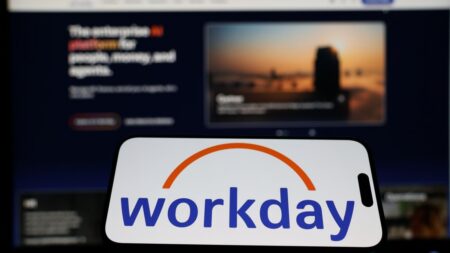Whether Oracle or some other top-tier cloud provider ends up acquiring Cerner, the current ‘Oracle Buying Cerner for $30 Billion’ frenzy will trigger a takeover spree in the cloud industry with vertical-market specialists as the targets.
In my weekly Cloud Wars Top 10 rankings, Oracle is #6.
Here’s why I’m expecting a widespread shopping binge for industry-focused tech firms with applications and/or data.
5 steps to M&A spree
- As the global digital economy kicks into high gear, there is absolutely no question that the cloud has become the preferred IT environment for businesses in every industry and every part of the world. No doubt some on-premises systems will be around for years to come, but the cloud is the strategic IT foundation of the future.
- The surge toward data-driven digital business is requiring businesses to change every facet of their operations: business models, revenue models, engagement models, product-development models, talent strategies, organizational structures, and more. The cloud is optimized for handling this type of high-velocity and high-impact change.
- As vital as that is, it’s not enough. In today’s world, the demands of customer-centric digital business require new processes, new ways of using data, new knowledge of how not just businesses but entire industries operate, and new capabilities to handle processes, workflows, and data from both the supply side and the demand side.
- All of that, my friends, means that businesses need new and enhanced cloud services that can handle all those new requirements, that deliver those deeper levels of specificity that those new processes demand, and that are able to manage, move, analyze, and leverage data according to the specific needs of a specific industry.
- And industry clouds and industry-specific solutions are the perfect answer to all those needs.
Are the major cloud providers ready?
While every one of the leading cloud vendors has begun addressing this industry-specific phenomenon, some have done so more aggressively and successfully than others: my Industry Cloud Top 10 is led by #1 Salesforce, #2 Google Cloud, #3 Oracle, #4 Microsoft, and #5 SAP.
Of those, only Salesforce discloses industry-cloud revenue. In the quarter ended Oct. 31, Salesforce said its industry-cloud business had reached an annualized revenue run rate of $3 billion. That equates to almost 12% of Salesforce’s overall revenue and is the primary reason Salesforce sits atop my Industry Cloud Top 10.
But while all of the big cloud vendors speak passionately about their industry solutions and unwavering commitment—all of which was clearly expressed at the Industry Cloud Battleground digital event we held last month—every single one is looking to add new services, capabilities, and breadth to those industry-specific offerings.
Larry Ellison’s view of healthcare opportunity
Look at Oracle. While we at Cloud Wars broke the Oracle-Cerner possibility 6 months ago, the frenzied coverage of that possibility came to light last week. But that was a full week after Oracle chairman Larry Ellison stated very publicly on Oracle’s Dec. 9 earnings call that healthcare and financial services were the two industries of greatest strategic importance to Oracle.
Here’s how I described the situation in my analysis headlined, Larry Ellison Unveils Next Big Oracle Thing: ERP Plus Industry Clouds:
Ellison then described the healthcare industry as “on par with banking in terms of the importance to our future,” and cited go-lives at Kaiser and Cleveland Clinic as well as a new contract with Mayo Clinic, which Ellison called “the number-one ranked hospital in the United States.”
So even as Ellison was saying that healthcare is already hugely important to Oracle, his company might well have been in the midst of making overtures to EHR giant Cerner.
The point is that for every one of the major cloud providers aggressively pushing industry clouds—including Salesforce, Google Cloud, Oracle, Microsoft, SAP, and Workday—their efforts represent works in progress rather than finished portfolios. The Oracle-Cerner possibility is a perfect example of this.
Hottest segment of the entire cloud industry
Now, looking ahead to 2022 and 2023, I’ve stated very publicly on a few occasions that I believe that industry clouds will be the hottest segment of the entire cloud industry for those 2 years—so the growth potential is enormous.
And in that context, we can expect that the Cerner frenzy will be only the beginning of an M&A outbreak that will flesh out the industry-cloud portfolios of the major cloud providers.
All in all, this will be like pouring jet fuel on a raging fire because even before that M&A buying spree kicks off, the enterprise cloud is—and please say it with me—the greatest growth market the world has ever known.








